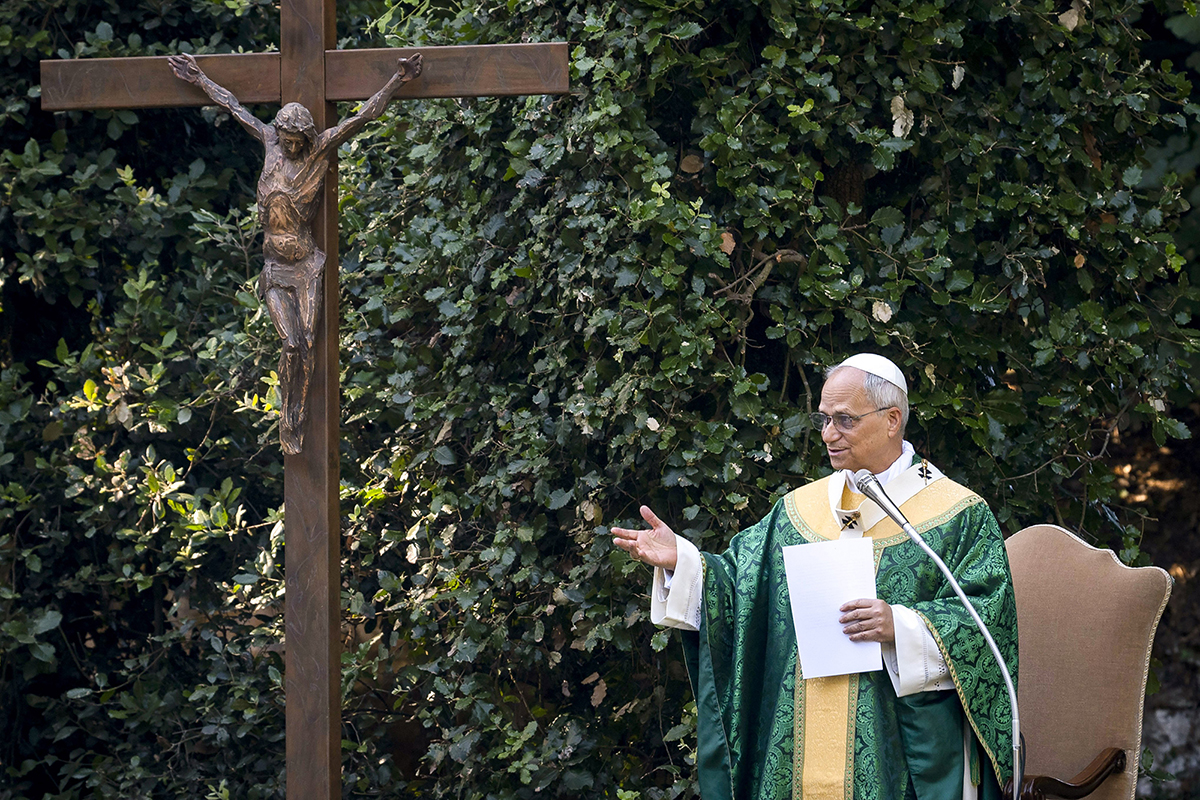SERVE THE LORD WITH GLADNESS | Let Jesus challenge our assumed scales of value
Obstacles are not hindrances to spiritual growth but the very things that help us grow

Dear brothers and sisters in Christ,
We leave the Christmas season and enter Ordinary Time this week, and we begin a long stretch of readings from the Letter to the Hebrews.
Hebrews is concerned with overturning a key assumption of ancient Greek culture: that anything in the spiritual realm was greater than everything in the physical realm. If that were true, then Jesus, because He came in the flesh, must be lesser than the angels. But Jesus is God in the flesh and is exalted above the angels! That overturned an assumed scale of values in the ancient world. And that should get us thinking: Are there any assumed scales of values in our culture that need to be challenged by Jesus?
Hebrews also tells us that Jesus was made perfect through suffering. That not only challenged ancient assumptions; it challenges us today! Why should Jesus be perfected by suffering rather than by having everything go right? Shouldn’t He “rise through the corporate ladder” of the spiritual life in an unbroken line of success?
But the fact that it strikes us as odd is the measure of how far we’ve departed from God’s way of doing things! Deeper reflection on our own experience confirms this truth: Obstacles are often not hindrances to spiritual growth but the very things that help us grow. Still, we manage to run from those crosses rather than embrace them and surrender to God through them.
Finally, remember that Jesus is specifically known as “Jesus of Nazareth.” Not Athens; not Rome; not Alexandria; not Jerusalem. Jesus didn’t hail from any of the centers of ancient worldly power. In today’s terms, we might say: He didn’t go to an Ivy League school, and He didn’t work for a Fortune 500 company. If there was an ancient bias for what power looks like and where it comes from, we share it!
So when we hear in the Gospel of Mark this week that Jesus chose fishermen as His first disciples and that He was eating with tax collectors and sinners, we ought to say: “We might have guessed it! Choosing the small and the lowly — that’s His way.”
We have our own assumed categories today. I think we need to let Jesus challenge them.
We act surprised when Jesus calls us to evangelize, because we don’t have theology degrees. We have a hard time believing that Jesus wants to work through our weaknesses, not only our strengths. We’re surprised when we find that programs are less effective for spreading the Gospel than individual invitations. We struggle to accept that depth of interaction can be a more important measure of success than number of attendees. We get impatient when an evangelizing culture takes years to develop. But aren’t those all rooted in how Jesus has always acted?
The Letter to the Hebrews says that Jesus “had to become like His brothers and sisters in every way.” That meant, contrary to all ancient expectation, that He took on flesh and blood. It meant, contrary to all expectation, that He became small.
I think the same Jesus is at work in the Church today. Maybe, as a New Year’s resolution, we could be more patient with His continued choice to be small and more confident in the power of His smallness.
Obstacles are not hindrances to spiritual growth but the very things that help us grow
Subscribe to Read All St. Louis Review Stories
All readers receive 5 stories to read free per month. After that, readers will need to be logged in.
If you are currently receive the St. Louis Review at your home or office, please send your name and address (and subscriber id if you know it) to subscriptions@stlouisreview.com to get your login information.
If you are not currently a subscriber to the St. Louis Review, please contact subscriptions@stlouisreview.com for information on how to subscribe.





